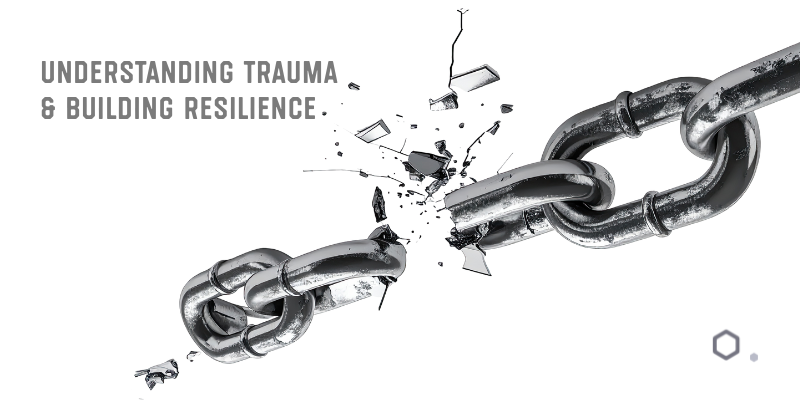By Shahrzad Akbari
QubeCore Sports & Rehab Clinical Counsellor
What is Trauma?
Trauma is an emotional, mental, or physical response to experiences that are deeply distressing or overwhelming. It is not only about what happens, but also about how a person perceives and processes the event. Different people can respond differently to similar situations – what is traumatic for one may not be for another. Traumatic experiences can include abuse, neglect, loss of a loved one, serious illness, witnessing violence, natural disasters, major life changes, or living in unsafe environments. Prolonged or repeated traumatic experiences can lead to complex trauma, affecting emotional regulation, relationships, and overall sense of safety.
Recognizing Trauma
Trauma can affect people in many different ways, influencing emotions, behavior, and physical well-being. Common signs to watch for include:
- Emotional challenges such as anxiety, mood swings, or difficulty managing feelings
- Changes in behavior, including withdrawal, irritability, or acting out
- Struggles with relationships and forming trust
- Sleep difficulties or recurring nightmares
- Physical symptoms like fatigue, body aches, or headaches
- Trouble concentrating, staying focused, or performing at work or school
- Heightened alertness, feeling “on edge,” or persistent tiredness
These reactions are natural responses to overwhelming experiences, and noticing them early can help guide steps toward healing and support.
What is Resilience?
Resilience is the ability to recover, adapt, and grow after experiencing difficult or traumatic events. Healing is possible, and people can regain well-being, sometimes emerging even stronger. Strong and supportive relationships with friends, family, or community members are key to fostering resilience. Activities such as exercise, creative expression, mindfulness, and social engagement can all contribute to a sense of capability, control, and hope for the future.
How Counselling Supports Trauma Recovery
Through counselling, patients can:
- Feel safe and supported in expressing difficult emotions
- Gain validation and understanding of their experiences
- Explore and process traumatic events in a secure environment
- Learn strategies to manage and regulate emotions effectively
- Build confidence in their ability to cope and recover
- Strengthen resilience and a sense of hope for the future
Conclusion
Trauma can be overwhelming, but healing is possible. With guidance from caring professionals, you can process your experiences, rebuild confidence, and gradually regain a sense of safety. Every step forward brings hope and the opportunity to create a brighter, more fulfilling future.
QubeCore Sports & Rehab offers Clinical Counselling services in North Vancouver for a wide range of concerns. To book your appointment with Shahrzad Akbari, call 604.210.2274 or simply book online by clicking HERE.
